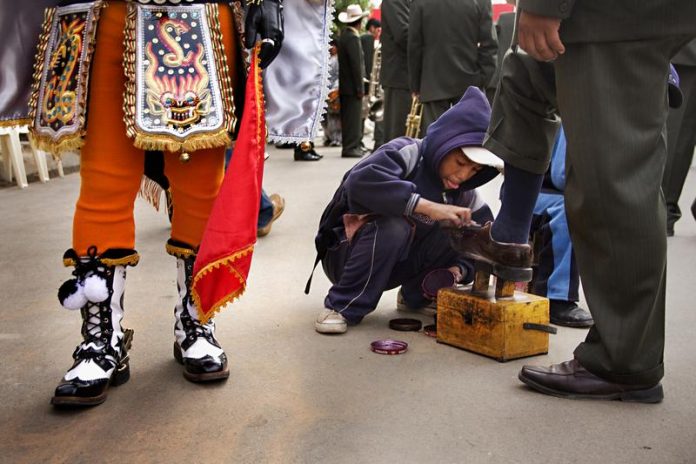South American country Bolivia has the world’s lowest minimum age for child labour of 10 years. Under a controversial law passed in 2014 children aged 10 years can work for themselves or their families. After age 12, the children can work for others as well.
Several international groups including United Nation’s International Labor Organization (ILO), prohibit children under the age 14 from working. However according to UNICEF nearly estimated 850,000 Bolivian children nearly 30 % of all children aged 5 to 7 years work currently.
The ILO has urged the country to repeal the child labour law, even as the government struggles to implement laws to regulate and protect child from abuse or exploitation.
Children Abused And Exploited
Advocates opposed to child labour allege that children are often exploited or sexually abused, and several end up living on the streets, facing crime, violence and addiction.
Amparo Carvajal, president of the Permanent Assembly of Human Rights in La Paz, Bolivia’s capital, has said that passing a law to legalise child labor “was terrible, a mistake.”
However supporters state that legal child labor empowers the children, and further, child workers were involving in drafting the law, sociologist Manfred Liebel pointed out.
Initially, Bolivian lawmakers had intended to set the minimum working age at 14, but after protests and riots by child workers which included clashes with the police in 2013, it was amended.
The law was cleared with support from Bolivian President Evo Morales, according to whom jobs help children to develop “social awareness.” He noted that while child work should not be eliminated, children should not be exploited or forced to work either.
Morales himself started herding llamas at age 6.
Child Work Grants Self Esteem
The practice of childwork is the result of both poverty and tradition. According to Simon Mamani whose three kids help on the family’s dairy farm stated that without everyone working, “we wouldn’t live.”
Hernan Rico, leader of the Delegation on Children and Adolescents in the government’s Ombudsman’s Office, stated that the country was protecting the rights of these children ”as part of their cultural development.”
Peter Strack, a sociologist in Cochabamba, southeast of La Paz also echoed a similar view, saying that the 2014 law provided children a voice and has helped boost young workers’ self-esteem.
Under the law, parents must sign permits that allow the children to work. According to Strack however just around 10 permits have been so far issued in Cochabamba, where child workers have previously complained of low wages.
Most of the children working earn between $4 and $8 per day at the city’s famed La Cancha market. Some vendors exploit children, especially those aged 8 and 9, paying them wages of just $1.50 to $3 per day. Sometimes, they’re given only meals for their labor, according to Sandra Caiguara, director of the Brother Manolo Center, a Christian group.
Caiguara said that most children come into the market at 6 a.m. to wash dishes or sell produce, often not leaving until 4 p.m. or later. These children typically work to support themselves as well as their families.
A Normal Practice
For Bolivians, it is “normal” for children to work at a young age, noted Victor Paredes a sociologist who had studied a community where a cement plant was built in 2015. Children and adolescents fetched bricks, wash clothes and some girls were abused with a few of them becoming pregnant, however the government doesn’t investigate such cases.
According to Marcos Gandarillas, a Cochabamba sociologist who studies the mining and oil industries, most children work in “semi-slavery”. He pointed out that globalization has put demands of “very cheap natural resources from Bolivia,” and child workers are usually inexpensive and easy to replace.
He however highlighted that Americans must care, as much of Bolivia’s natural resources, including silver, gets exported to the United States.



